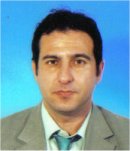|
Plenary Lecture
Influence of Gasoline-Methanol Mixtures in a Two-Stroke Engine

Professor
Charalampos Arapatsakos
Department of Production and Management Engineering
Democritus University of Thrace, Xanthi
Greece
E-mail: xarapat@agro.duth.gr
Abstract: One of the alternative fuels that are used is methanol. Methanol
(CH3OH) is an alcohol that is produced from natural gas, biomass, coal and
also municipal solid wastes and sewage. It is quite corrosive and poisonous
and has lower volatility compared to gasoline, which means that is not
instantly flammable. Usually methanol is used as a gasoline-blending compound,
but it can be used directly as an automobile fuel with some modifications of
the automobile engine.
This paper refers to the use of gasoline-methanol mixtures in a two-stroke
small engine. The mixtures that were used are: gasoline, gasoline-10%methanol
20%methanol, gasoline-30%methanol, without any regulation of the engine
relatively to the air/fuel ratio, maintaining the original adjustment that
concerned gasoline was maintained. An important reduction of emission(CO, HC)
was noted while the percentage of the methanol was increased. During the tests
the fuel consumption was recorded for every mixture separately. It was
observed a small increase of consumption when the percentage of methanol in
the fuel was increased.
Brief biography of the speaker:
Born in: Athens, Greece
Citizenship: Greek
Titles:
-Mechanical Engineer, Ph.D. (Democitus University of Thrace-Greece),
Assoc. Professor on University of Thrace-Greece
Present Responsibilities:
-Member of Technical Chamber of Greece
-Member of Electrical and Mechanical Engineering Association
-Member of Combustion Institute of Greece
Participations:
I took part in many research programs, which referred to biofuels, gas
emissions, antipollution technology.
Research domains:
Biofuels and their use in internal combustion engines, power variation from
the use of biofuels, gas emissions and mechanical damages.
| 